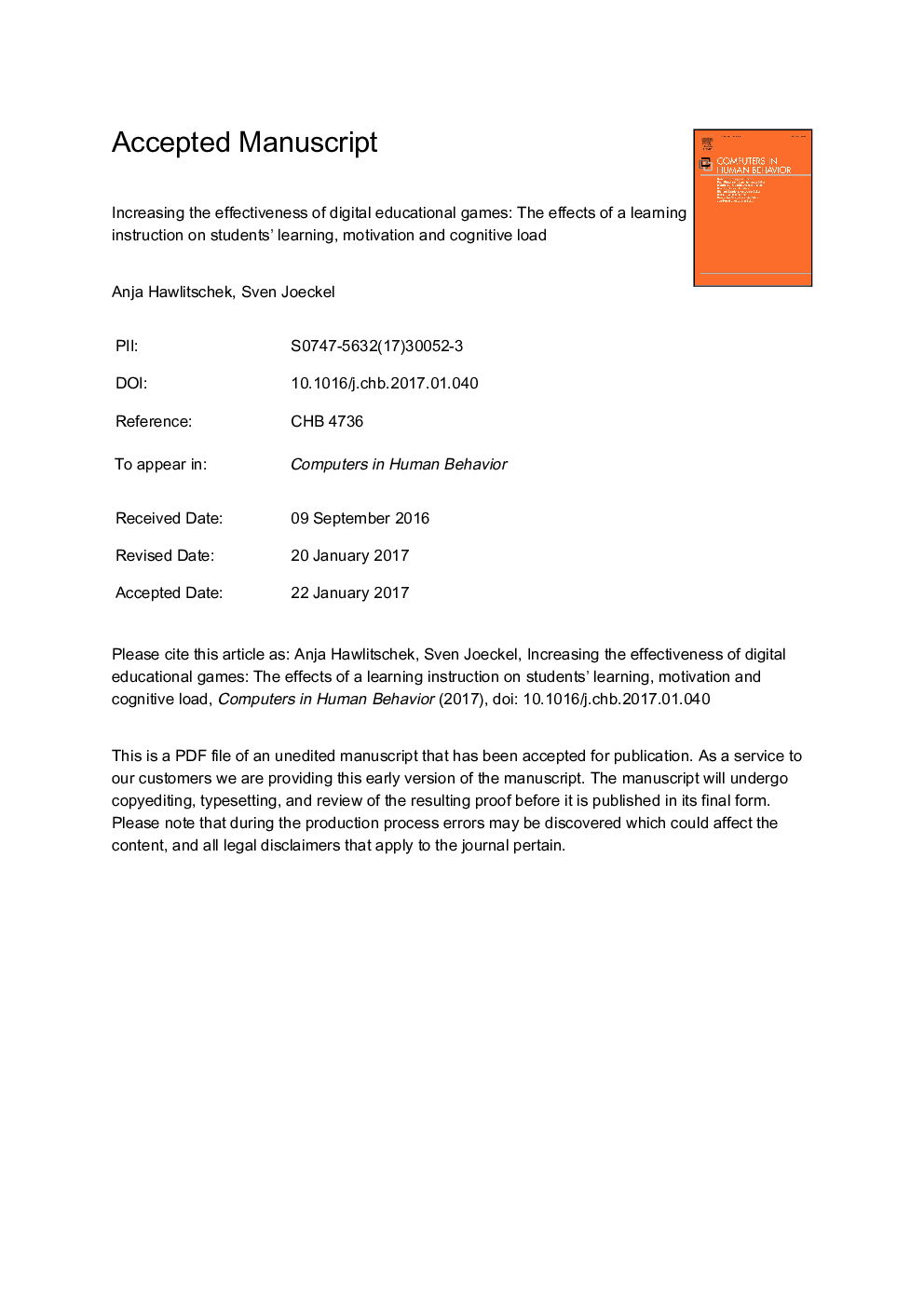| Article ID | Journal | Published Year | Pages | File Type |
|---|---|---|---|---|
| 4937079 | Computers in Human Behavior | 2017 | 32 Pages |
Abstract
This study examines the effects of integrating instructional support in the form of a prompt that highlights the importance of learning from the educational game. We set out to answer the question of whether or not it is necessary to indicate an educational game as a learning material (in contrast to pure entertainment) to facilitate learning relevant for school. Research on entertainment media suggests that the implementation of such a learning instruction increases learners' investment of mental effort and, thus, the learning outcome. Then again, learning instruction as an extrinsic incentive might negatively influence intrinsic motivation and extraneous cognitive load. Therefore, this study examines the effects of learning instruction on students' intrinsic motivation, cognitive load, and learning with a digital educational game. We carried out a one-factor (learning instruction: yes/no) experimental design with NÂ =Â 150 participants (age 13 to 17). Results indicate that the learning instruction increased task-irrelevant processing and decreased the learning outcome. Thus, adding an explicit learning instruction is not recommended. On the contrary, our results suggest that playing just for fun enhances the effectiveness of such a learning environment.
Related Topics
Physical Sciences and Engineering
Computer Science
Computer Science Applications
Authors
Anja Hawlitschek, Sven Joeckel,
